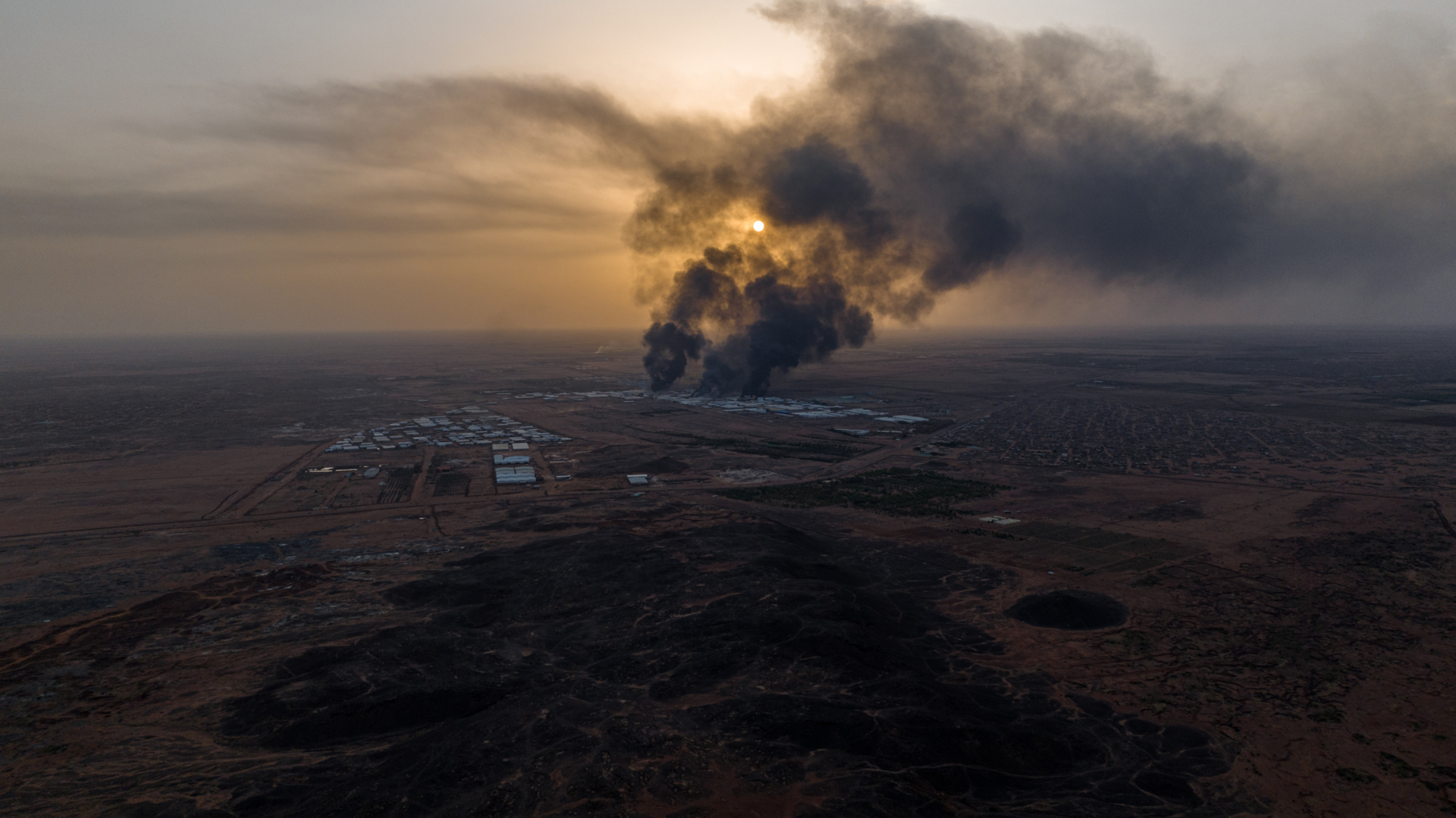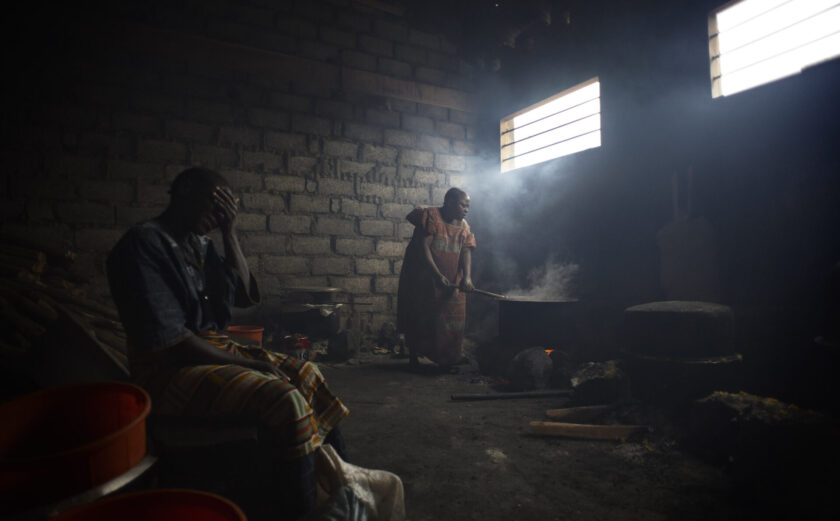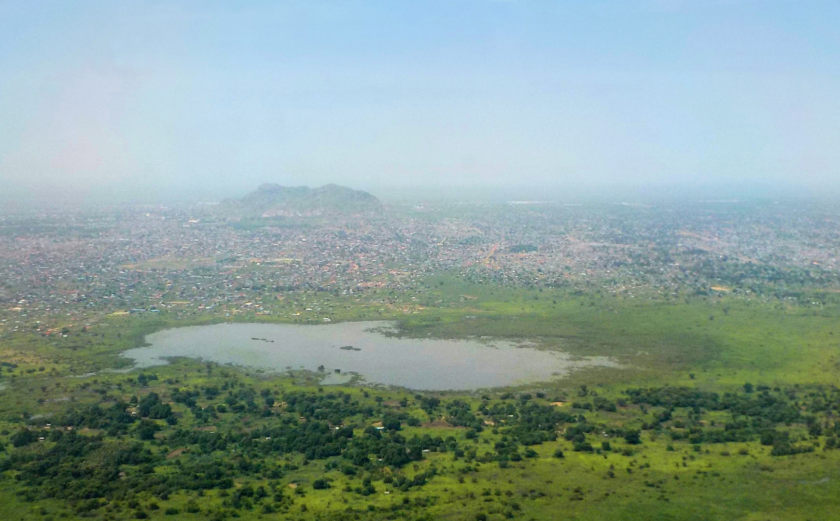
Addressing the Humanitarian Crisis in Sudan: A Call to Action
Sudan stands at a critical juncture as the one-year mark of the war between the Sudanese Armed Forces and Rapid Support Forces approaches on April 15.
The international community must heed the call to action to address the urgent humanitarian needs of the Sudanese people. The crisis demands immediate attention and decisive action to protect civilians, facilitate humanitarian access, and work toward a peaceful resolution.
Launching the Blog Series
InterAction and its Member organizations are launching a comprehensive blog series to shed light on the critical issues facing Sudan and provide targeted recommendations for policymakers. Through this initiative, we seek to highlight the urgent humanitarian needs in the region and advocate for effective, sustainable solutions to address the ongoing crisis.
InterAction will be posting the Member blogs starting Monday and continuing throughout the rest of next week. Content overviews for each article can be found below—links will be added to their titles as the blogs are published.
Big Picture
The blog series comes as the International Humanitarian Conference for Sudan and its Neighbors convenes on April 15. Stakeholders in Sudan have highlighted the need to separate and elevate humanitarian access and civilian protection priorities from the political process, ensuring that obligations under International Humanitarian Law are upheld independently of a ceasefire or formal dialogue between the parties.
Diplomatic efforts must bolster the effectiveness of U.N.-led engagement on humanitarian access and solicit commitments to protect civilians and facilitate aid from all actors involved in the conflict. Additionally, these efforts should call for renewed commitments to civilian protection and atrocity prevention, with immediate action needed to stop indiscriminate attacks and implement credible protection mechanisms.
Lastly and most importantly, elevating Sudanese participation in humanitarian response and peace processes is crucial for the present and future of Sudan, recognizing the pivotal role of civil society actors, including local response networks.
Blog Series Overviews
Access to Aid: A Cornerstone of Civilian-Centered U.S. Diplomacy
Author: Dhabie Brown, Senior Policy and Advocacy Advisor, NRC USA
One of the most pressing challenges facing Sudan is ensuring safe and efficient access to humanitarian assistance. Despite the efforts of aid organizations, only 20% of those in need received aid in 2023. The hardest-hit areas—including Khartoum, Gezira, Darfur, and Kordofan—are at risk of famine and require immediate attention.
Political interference and bureaucratic hurdles further compound the issue. Parties to the conflict have hindered aid activities, leading to delays in aid delivery and putting the lives of civilians at risk. The recent announcement of limited authorization for cross-border aid is a step in the right direction, but sustained and meaningful access remains elusive.
Forced Displacement: A Growing Crisis in Sudan
Authors: Kelli Clark, World Vision U.S.; Noah Gottschalk, HIAS; Maryline Njoroge, HIAS; Giulia McPherson, Jesuit Refugee Services; Beata Fogarasi, Save the Children
Forced displacement is a significant issue in Sudan, with over eight million people displaced internally and externally. The international community must support efforts to provide durable solutions for displaced populations, including safe return and reintegration.
Sudanese Groups Provide Light Amid Year of Darkness
Author: Hanin Ahmed, Sudanese Activist from Omdurman, Sudan
It is crucial for the international community to recognize and support the pivotal role of civil society and locally led initiatives in addressing the crisis in Sudan. These entities often have a deep understanding of local needs and can provide effective, context-specific solutions. To enhance their impact, locally led initiatives should be empowered.
Local response networks, including Emergency Response Rooms (ERRs), are the frontline humanitarian responders in Sudan. Enhancing the capacity of ERRs and similar actors to coordinate rapid and effective responses to emergencies should be a priority for donors. This can be achieved through training, resource provision, and institutional support.
Time is Running Out: Stopping a Downward Spiral Into Conflict-Induced Hunger in Sudan
Author: Sibongani Kayola, Mercy Corps
The threat of famine in Sudan is imminent, with an estimated 17.7 million people facing severe acute hunger in February 2024—and the situation is likely worsening. The ongoing conflict has decimated agriculture, a vital sector on which 60-80% of the population depends for income and food security. Access constraints due to insecurity and bureaucratic hurdles are severely hampering the delivery of humanitarian aid.
To avert a catastrophic famine, it is essential that the international community applies diplomatic pressure on warring parties to respect their obligations under international humanitarian law and facilitate humanitarian access. Additionally, the humanitarian response must adapt to support local groups and markets that are vital for community survival and recovery.
GBV and Women-Led Responses in Sudan
Authors: Caroline Zullo, InterAction; Ellen Bevier, CARE
The unprecedented protection crisis in Sudan has led to alarming levels of gender-based violence. Women and girls are most affected and have reported conflict-related sexual violence, early marriage, and domestic violence. Women-led organizations have demonstrated a critical impact in providing essential services, supporting survivors, and advocating for women’s rights, yet face challenges due to limited funding and operational constraints.
Community-Led Protection in Sudan
Authors: Megan Rodgers and Nic Pyatt, Nonviolence Peaceforce; Shaza Najwaeldin Ahmed, NADA
The protection of civilians in Sudan is crucial amidst widespread international humanitarian law (IHL) violations. Parties to the conflict must adhere to IHL and mitigate harm to civilians. Community-led initiatives have worked to prevent civilian harm and equip community members with the tools to protect themselves. InterAction and its Members remind Inter-Agency Standing Committee members of existing commitments to prioritize protection risk reduction in line with the centrality of protection policy.
—
For information regarding the blog series or InterAction’s Sudan Working Group, please reach out to Mais Balkhi at mbalkhi@interaction.org.
For media inquiries, please contact Mitch McQuate at mmcquate@interaction.org.
Note: The views expressed in the blogs are the authors’ own and do not necessarily reflect those of InterAction.









